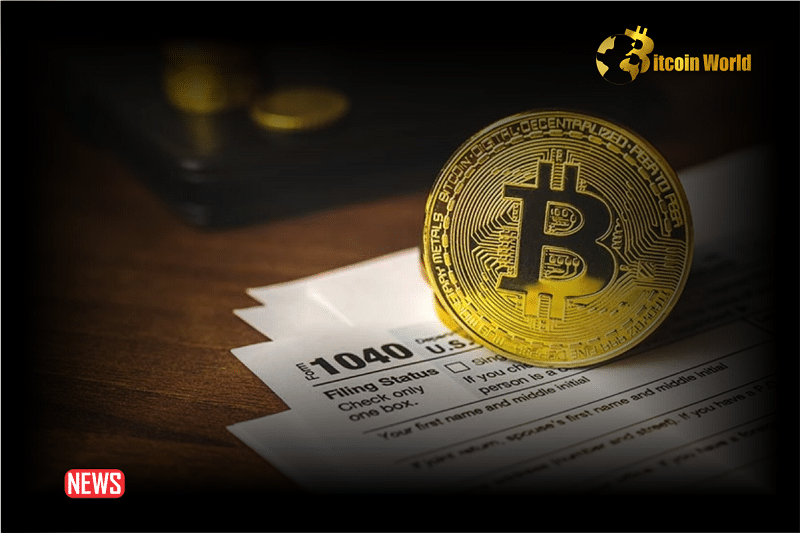Are you scratching your head over the complexities of crypto taxes? You’re not alone! The US Treasury Department’s proposed digital asset taxation regime is facing strong headwinds, and guess who’s leading the charge for a rethink? A bipartisan group of US lawmakers! They’re echoing concerns from the crypto industry, calling the proposed rules an “improper overreach” and frankly, “unworkable.” Let’s dive into what’s causing this stir and what it could mean for your crypto holdings.
Why are Lawmakers Saying ‘No’ to the Current Crypto Tax Plan?
Led by heavyweights like Chairman of the House Financial Services Committee, Patrick McHenry (R-NC), and Congressman Ritchie Torres (D-N.Y.), a group of nine lawmakers has formally voiced their concerns. Their main argument? The proposed tax reporting requirements are simply not practical. In a nutshell, they believe the current plan could seriously hinder the growth of the digital asset ecosystem within the United States.
Here’s a quick breakdown of their key issues:
- Broad Definition of “Broker”: The lawmakers argue that the proposed definition of a “broker” is too wide-ranging. It could inadvertently capture entities that don’t traditionally act as brokers. Think hosted wallet providers, some DeFi platforms, and payment processors. This is a major sticking point.
- Insufficient Definition of “Digital Asset”: Clarity is king, especially when it comes to regulations. The lawmakers feel the definition of “digital asset” itself isn’t clear enough, leading to potential confusion and compliance nightmares.
- Short Comment Period: Implementing new tax rules is a big deal. The lawmakers point out that the comment period provided was “unreasonably short” for such a complex and impactful proposal. This limited thorough feedback from the industry.
In their official announcement, which included a letter to the U.S. Treasury Department’s Assistant Secretary Lily Batchelder, the lawmakers emphasized that if the regulation is finalized as is, it could “prevent a large swath of the digital asset ecosystem from continuing to exist in the United States.” That’s a pretty strong statement!
Read Also: The Monetary Authority of Singapore Launches Project Guardian, A Tokenization Initiative
What’s the Crypto Industry Saying?
It’s not just the lawmakers raising red flags. Crypto representatives and lawyers have been vocal about their concerns too. They’ve labeled the proposed taxation scheme as “dangerous and improper overreach.” The industry fears that these overly broad rules could stifle innovation and push crypto businesses out of the US, potentially sending them to more crypto-friendly jurisdictions.
Is There Hope for Change?
Yes, there might be! Here’s some good news: recent indications suggest that the Treasury might be open to revising the proposal. During a recent hearing, questions from officials hinted that the tax proposal isn’t set in stone and could be “open for revision.” This is definitely a positive sign for the crypto community.
While the initial proposal was released in August, and the public comment period concluded on Monday after a massive 124,000+ comments, a final version is still some months away. This timeframe provides an opportunity for the Treasury to consider the feedback received, including the strong pushback from lawmakers and the industry.
The “Broker” Definition: The Heart of the Matter
Let’s zoom in on the core problem: the definition of a “broker.” The proposed rules aim to classify a wide range of crypto entities as brokers for tax reporting purposes. This means these entities would be required to report transactions to the IRS, similar to how traditional brokers report stock trades.
The issue is that the definition seems to cast too wide a net. Entities that don’t traditionally function as brokers – like those facilitating decentralized finance (DeFi) or providing non-custodial wallets – could be swept up in these regulations. This is what the lawmakers and the crypto industry are challenging.
As the lawmakers stated in their letter, “The definition of ‘Broker’ remains too broad and would capture entities that do not possess traditional characteristics of a broker.”
What Happens Next?
The crypto world is watching closely to see how the Treasury Department responds to this bipartisan pressure. Will they revise the definition of “broker”? Will they narrow the scope of the regulations? The coming months will be crucial in determining the future of crypto taxation in the US.
For now, one thing is clear: the debate around crypto tax rules is far from over. The active involvement of US lawmakers signals a significant push for more sensible and workable regulations. Stay tuned, as developments in this area could have a major impact on the crypto landscape!
Disclaimer: The information provided is not trading advice, Bitcoinworld.co.in holds no liability for any investments made based on the information provided on this page. We strongly recommend independent research and/or consultation with a qualified professional before making any investment decisions.




